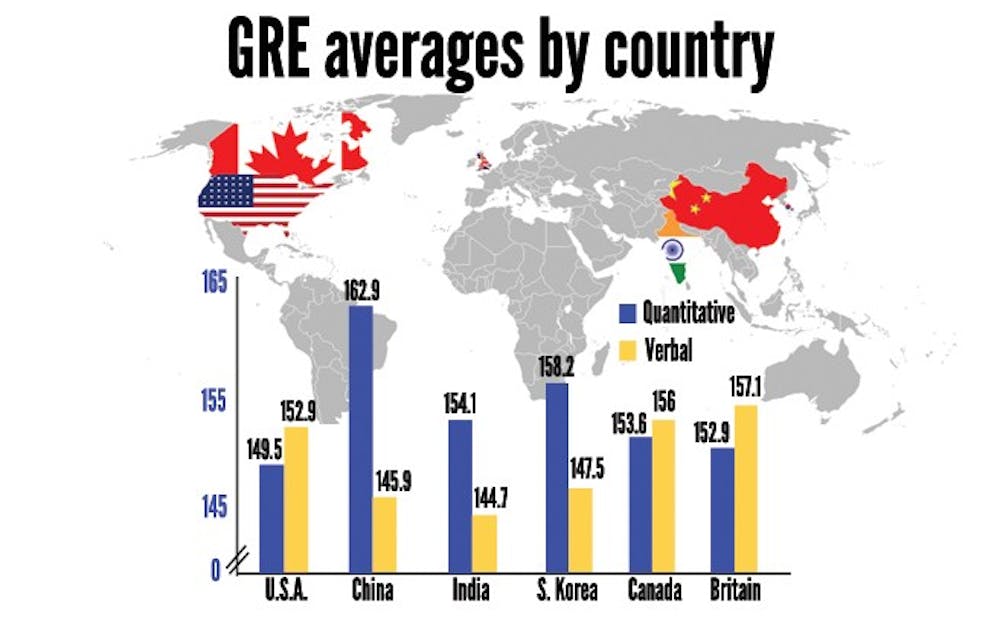Differences in standardized test scores do not add much to Duke’s graduate application process.
The Educational Testing System, creators of the GRE exam, reported in a recent study that United States citizens perform lower on quantitative reasoning sections of standardized tests than their non-U.S.-citizen counterparts—a mean of 149.5 against 155.6 on a scale of 130 to 170. The statistics also showed the opposite results for the verbal reasoning section, with U.S. citizens outperforming citizens of almost all other countries. Duke graduate and professional school admissions noted, however, that GRE scores are not the most significant component of perspective students’ applications.
“There’s not a hard and fast rule,” said William Pardon, mathematics professor and director of graduate studies. “We try to look for the best students. Period.”
Pardon said the difference in standardized testing scores is related to the difference in the undergraduate education systems around the world. Those who are seeking doctorate level mathematics degrees abroad will exclusively take mathematics courses rather than the liberal arts education found at American schools such as Duke, he noted. Because of these systemic differences, there are other factors that take much precedence over testing scores in graduate admissions decisions.
“What makes the difference is letters of recommendations,” Pardon said.
Letters of recommendation can pose a distinct advantage for domestic applicants, he added. Letters of recommendation from domestic applicants often feature more analysis of the applicants’ strengths and weaknesses as opposed to letters from international applicants which tend to be more generic in form.
Similar trends are found in admissions to the School of Law, which uses the LSAT in admission decisions. William Hoye, associate dean of admissions and student affairs for the Law School, noted that although there are a lower number of international than domestic students enrolled in the Juris Doctor degree program, the discrepancy in enrollment is not due to a difference in standardized test scores of the applicant groups. There simply is a smaller pool of international applicants, he said, and there is little difference in overall quality between domestic and international applicants.
“In fact, we are more understanding of a low LSAT score if English is [the applicant’s] second language,” Hoye said.
International students are more heavily enrolled in the Master of Laws program, a degree that focuses on explaining the United States law and judicial systems to existing lawyers, which is often pursued by foreign lawyers studying international law.
Both international and domestic students accepted into the graduate programs emphasized the importance of teacher recommendations and personal experience over standardized test scores.
The difference in scores on the verbal reasoning skill section may come from cultural distinctions, noted senior Caitlin Esoda, who was recently admitted to the Ph.D. program in cell biology at Duke.
“[The GRE] would be difficult without English as a first language,” Esoda said. “If I could not understand the test, I would do worse.”
Hoye said all Duke graduate programs seek a diverse student body, despite disparities in test scores between domestic and international students.
“We care about enrolling a diverse class—not just in the traditional ways, but also [a diversity of] point of view,” Hoye said. “International students possess qualities that can persuade us [to accept them], but so can domestic students.”
Get The Chronicle straight to your inbox
Signup for our weekly newsletter. Cancel at any time.

